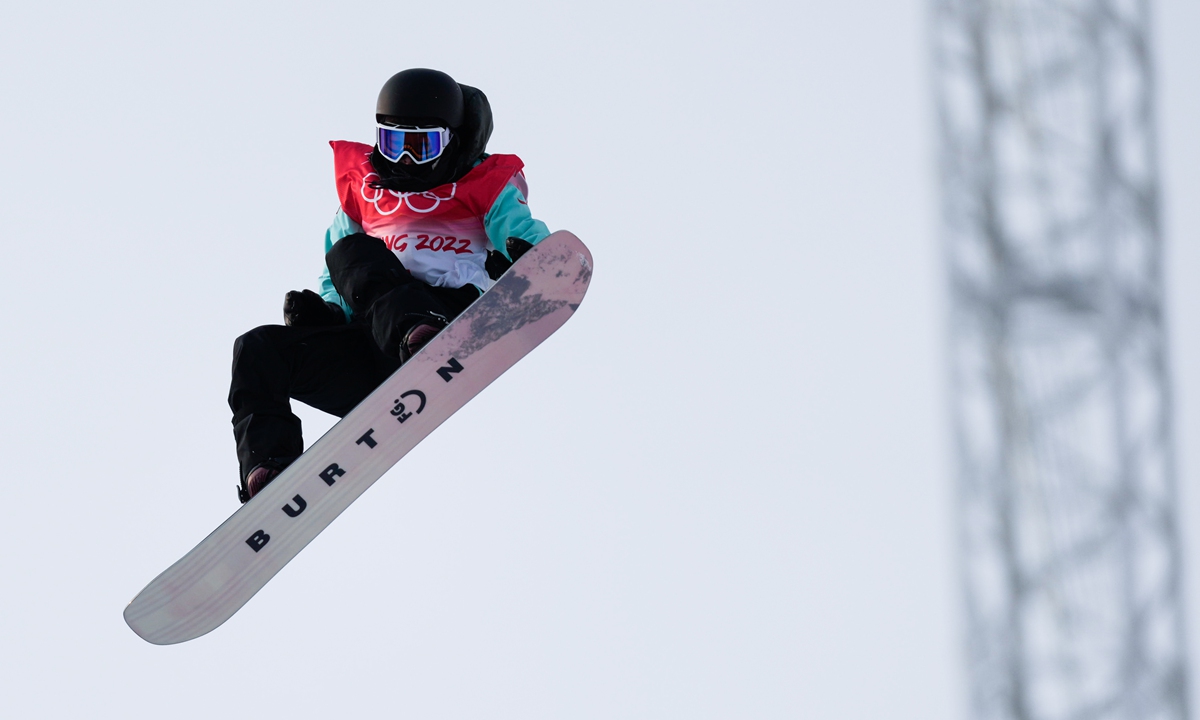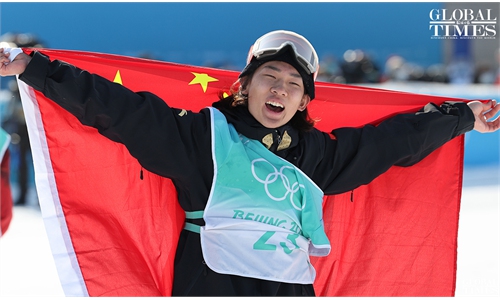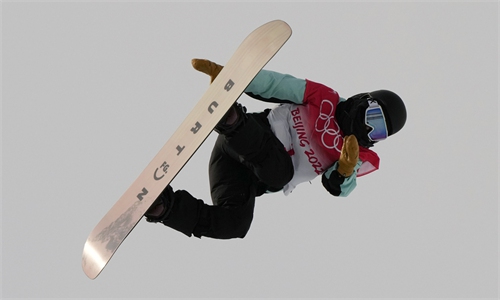SPORT / OLYMPICS
Exclusive: Passion is why I have persevered for 20 years: four-time Olympian, China's first woman of snowboarding Cai Xuetong

Cai Xuetong Photo:VCG
She is a 28-year-old Chinese snowboarder born in the "snow and ice capital" Harbin, Northeast China's Heilongjiang, who has spent most of her life on snowboards since 11. She has won various international competitions with 27 medals and 13 championships. She is a four-time Olympian who placed fourth in the women's snowboard halfpipe final at the Beijing 2022 Winter Olympic Games. She is China's first woman of snowboarding, Cai Xuetong. She has persevered through thick and thin only because she "loves the game with all my heart."
In an exclusive interview with the Global Times, Cai talked about her childhood and how she embarked on this challenging but fun journey to the largest sport events in the world. "My father gave me my first pair of roller skates when I was little, and I would often wear them running up and down the stairs. It was spotted by a coach at a local sports school from my neighborhood, Li Daji, who insisted that I was a 'genius' of winter sports and I should become a professional."
Cai said her personality was like a boy--naughty and tough--and would never cry when she fell, which made her a perfect candidate for a professional athlete.
When she was 10, Cai's mother found a mud medal on her desk. Carved on the back of the medal was Cai's handwriting - "my goal is to pursue the highest level of sport." Recalling this, Cai said, "The dreams set up at that age were very great ideals. Along the way I have never given up the pursuit for this ideal, but with my age and experience growing, my understanding toward 'the highest level of sport' has changed. Now, I think it means to enjoy the game as it is."
Having trained as a snowboarder for almost 20 years, Cai has won 13 golds at various international competitions. At the FIS Snowboard World Cup, Cai topped the halfpipe rankings for five years as well as the freestyle overall ranking for two years. In 2015, she claimed the gold medal at the FIS Snowboard World Championships, and a silver in 2019.
She entered her first Olympics in 2010 in Vancouver as the youngest competitor in the halfpipe event, laying a solid foundation for her major progress four years later at the Sochi Winter Games, where she successfully advanced into the final and placed sixth despite recovering from an injury.
However, her performances at the 2018 PyeongChang Winter Games, which put her at fifth in the halfpipe final, had given her a major blow. "When there is not much experience, you may feel it is normal to gain and lose. But when you reach a certain level, it will be very painful to lose," she said.
Although she did not give her best at PyeongChang, Cai started to adjust her mentality and realized that the games are not about winning but enjoying the challenge and the fun of skiing.
"While not having claimed a medal in the Olympics, I have proven to myself on many other occasions. Sometimes I only lacked a little bit of luck in the Olympic Games. In PyeongChang I was at my best status not only in terms of my capability but age. But because I was under too much pressure and thinking about the results, I ended up limiting myself. Later, I realized that, why have I persevered? It's only because I love snowboarding," Cai told the Global Times.
Cai noted that the only "pain" that she has felt was not from injuries or training, but in not achieving a satisfactory state when doing a challenging move. "I never think that our kind of sport can achieve success in pain."
When asked if she had any regrets in the Beijing Winter Games, Cai said she is generally satisfied with herself. Being able to compete in the Olympics in her homeland, she did not feel the pressure, and just wanted to show her style of movement, tell the world the fun she had, and let people see her passion and join her in the sport.
"Do not give up on the things you like best. Yes, when facing difficulties, we have times of frustration. But we still have to acknowledge our past experiences and the decisions we have made, and not doubt ourselves. I hope we can all move forward toward one direction," Cai said.


